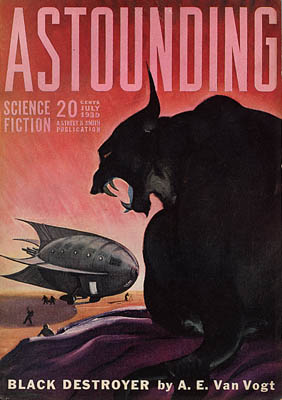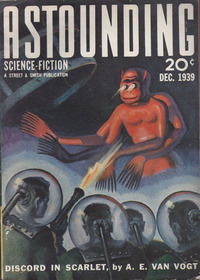Recently, on a writer listserv I’m on, discussion veered to how to turn kids in general, but boys in particular, into avid readers. The general consensus from the parents on the list was: limit screen time, whether TV, games, videos; find books they are interested in; and read to them every day. On the topic of how to find books, one father of two boys in particular recommended the authors Patricia Wrede, Diana Wynne Jones, and Garth Nix, saying that he hadn’t considered the gender of the authors or the main characters, he just knew his kids would love their books, and they had. I would certainly second his recommendation. There is plenty for adults to enjoy, too.
Garth Nix, who is this year’s Guest of Honor at the World Fantasy Convention, is my 9-year-old son’s favorite author, and the one who easily topped his “what books would you want with you on a desert isle” list. (Here in Dubai, we are on a desert peninsula, not isle, but given how expensive books are, the feeling is sometimes the same.) Having been given a size and weight limit by his parents, he filled it mostly with Nix’s Seventh Tower and Keys to the Kingdom series.
The former consists of six slim volumes that would add up to a decent-sized tome in the adult section. It’s set on a pair of worlds, one, Aenir, the source of magic and spirits, the other, where humans live, in perpetual darkness except for the magical Sunstones that come from Aenir. Residents of the seven-towered Castle on the human world must each acquire and enslave a spiritshadow (exchanging it for their own natural one) via a quest to Aenir in order to achieve any status. The story begins when one of the main characters, Tal, has to steal a Sunstone from the top of one of the towers in order to heal his sick mother. He falls off the tower, out of the Castle, and into the wider world where his people are considered evil sorcerers…. It’s fast-paced, very readable, with humor, plot complications, and interesting characters and world-building, if (to an adult) a rather familiar overall plot trajectory.
…
Read More Read More
 “So just what is science fiction?” asks editor Lou Anders in the preamble to his second and latest volume of Fast Forward, an annual collection of original genre stories (you can find my review of the first edition
“So just what is science fiction?” asks editor Lou Anders in the preamble to his second and latest volume of Fast Forward, an annual collection of original genre stories (you can find my review of the first edition 

 Clint Eastwood never starred in or directed a sword-and-sorcery or heroic fantasy movie, and since he’s declared his retirement from acting with 2008’s Gran Torino, chances are he never will. That’s too bad, since the leathery, iconic actor might have made a nice fit into certain dark fantasy worlds. Michael Moorcock thought he would have made an excellent Eric John Stark; I agree. But Eastwood as a performer and director was more interested the realistic American landscape, and he never got near the world of the overtly fantastic.
Clint Eastwood never starred in or directed a sword-and-sorcery or heroic fantasy movie, and since he’s declared his retirement from acting with 2008’s Gran Torino, chances are he never will. That’s too bad, since the leathery, iconic actor might have made a nice fit into certain dark fantasy worlds. Michael Moorcock thought he would have made an excellent Eric John Stark; I agree. But Eastwood as a performer and director was more interested the realistic American landscape, and he never got near the world of the overtly fantastic. Naughty or nice? Well, the holidays being my favorite excuse to procrastinate, I’ll have to reluctantly admit to ‘naughty.’ Being naughty, I’ve left my blog entry to the last minute. I’ve had a few New Yearsie ideas I thought I might advance, the kinds of things having to do with resolutions — mostly of the writing variety. But writing has been well enough covered at Black Gate of late and, while I know we have a lot of writers in our audience, I can’t help but think the thing that really pulls us all together, and sets us apart from, well, from a great many people who would never pick up a work of fiction let alone investigate the website of a fantasy magazine, is that we are all readers. First and foremost, that defines us.
Naughty or nice? Well, the holidays being my favorite excuse to procrastinate, I’ll have to reluctantly admit to ‘naughty.’ Being naughty, I’ve left my blog entry to the last minute. I’ve had a few New Yearsie ideas I thought I might advance, the kinds of things having to do with resolutions — mostly of the writing variety. But writing has been well enough covered at Black Gate of late and, while I know we have a lot of writers in our audience, I can’t help but think the thing that really pulls us all together, and sets us apart from, well, from a great many people who would never pick up a work of fiction let alone investigate the website of a fantasy magazine, is that we are all readers. First and foremost, that defines us. I used to know a responsible person who had a brilliant method of evading responsibility. Whenever you asked him anything, he would say, “What you’re really asking is two things here.” And an exhaustive discussion of his quibble would ensue and, in the end, the matter would merit more thought (but, naturally, no action). He was a kind of genius, if being useless is a category of genius.
I used to know a responsible person who had a brilliant method of evading responsibility. Whenever you asked him anything, he would say, “What you’re really asking is two things here.” And an exhaustive discussion of his quibble would ensue and, in the end, the matter would merit more thought (but, naturally, no action). He was a kind of genius, if being useless is a category of genius.